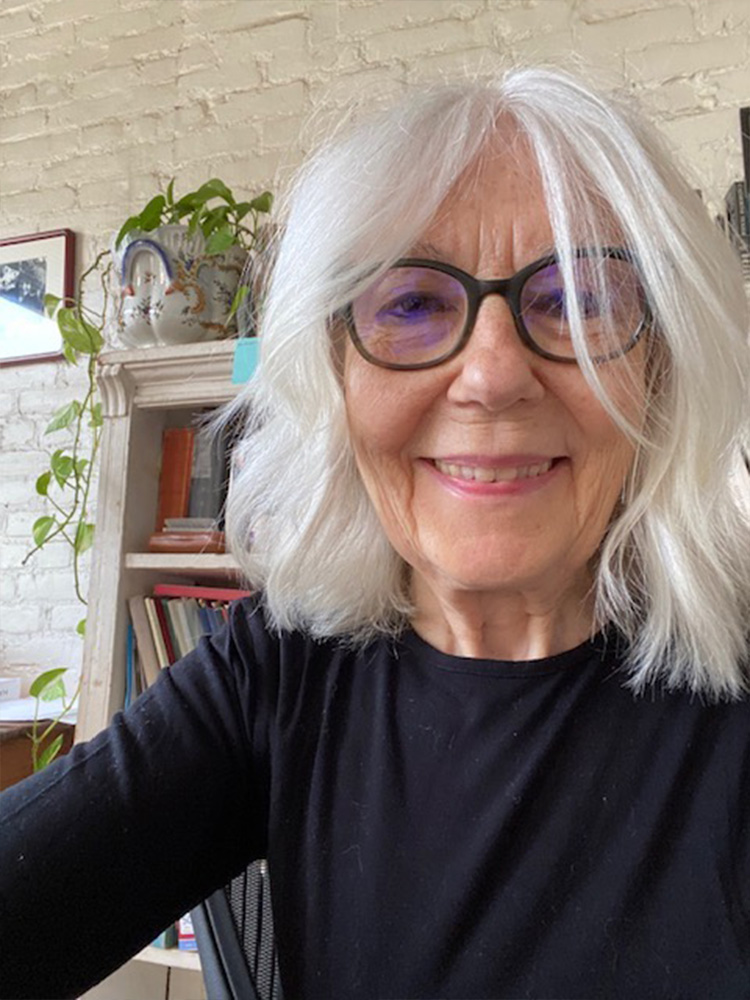
Catherine Texier
- Fiction and Creative Nonfiction Mentor
- MFA in Writing
Additional Information
Biography
CATHERINE TEXIER is a French writer living in New York City. She is a graduate of the University of Paris and did her graduate studies at l’Institut d’Etudes Politiques de Paris. She is the author of six novels, Young Woman with a Bunch of Lilac, Victorine, Panic Blood, Love Me Tender and Chloé l'Atlantique (written in French), Russian Lessons, and a memoir, Breakup. She was coeditor, with Joel Rose, of the groundbreaking literary magazine Between C and D and is the recipient of a National Endowment for the Arts Award and two New York Foundation for the Arts Fellowships. Her novel Victorine won ELLE Magazine’s 2004 Readers’ Prize for Fiction, and was published in France in her own translation. Her work has been translated into ten languages. Her short stories, essays, and reviews have appeared in The New York Times, Newsday, ELLE, Harper’s Bazaar, Marie-Claire, More, Cosmopolitan, Bookforum, and nerve.com, as well as in numerous anthologies. Her novel Russian Lessons has been excerpted in nerve.com, the anthology Mr. Wrong and the Saint-Petersburg Review. She is assistant professor in creative writing at the New School in New York City, and thesis advisor at Columbia University MFA.
Teaching Philosophy
“As ex co-editor of the literary magazine Between C and D, my role was to discover and nurture exciting new writers who went on to establish themselves and brilliantly further their art. I look at teaching in the same spirit: an opportunity to nurture budding writers and help them find their voice. I promote a climate of openness in the classroom, essential, in my mind, to help a writer flourish. At the same time, I teach the discipline of revising and self-editing and try to foster honest critical dialogue. I encourage my students to read avidly, to take emotional risks and keep revising until they get it right.
“The more I teach and the more I write, the more I realize that writing requires brave clear-sightedness coupled with a ruthless pruning of what is not absolutely essential. Depth and economy is what we are after as writers. For me teaching goes hand in hand with writing: one informs the other, in a continual dialogue, and a continual deepening of the craft.”

Additional Information
Biography
CATHERINE TEXIER is a French writer living in New York City. She is a graduate of the University of Paris and did her graduate studies at l’Institut d’Etudes Politiques de Paris. She is the author of six novels, Young Woman with a Bunch of Lilac, Victorine, Panic Blood, Love Me Tender and Chloé l'Atlantique (written in French), Russian Lessons, and a memoir, Breakup. She was coeditor, with Joel Rose, of the groundbreaking literary magazine Between C and D and is the recipient of a National Endowment for the Arts Award and two New York Foundation for the Arts Fellowships. Her novel Victorine won ELLE Magazine’s 2004 Readers’ Prize for Fiction, and was published in France in her own translation. Her work has been translated into ten languages. Her short stories, essays, and reviews have appeared in The New York Times, Newsday, ELLE, Harper’s Bazaar, Marie-Claire, More, Cosmopolitan, Bookforum, and nerve.com, as well as in numerous anthologies. Her novel Russian Lessons has been excerpted in nerve.com, the anthology Mr. Wrong and the Saint-Petersburg Review. She is assistant professor in creative writing at the New School in New York City, and thesis advisor at Columbia University MFA.
Teaching Philosophy
“As ex co-editor of the literary magazine Between C and D, my role was to discover and nurture exciting new writers who went on to establish themselves and brilliantly further their art. I look at teaching in the same spirit: an opportunity to nurture budding writers and help them find their voice. I promote a climate of openness in the classroom, essential, in my mind, to help a writer flourish. At the same time, I teach the discipline of revising and self-editing and try to foster honest critical dialogue. I encourage my students to read avidly, to take emotional risks and keep revising until they get it right.
“The more I teach and the more I write, the more I realize that writing requires brave clear-sightedness coupled with a ruthless pruning of what is not absolutely essential. Depth and economy is what we are after as writers. For me teaching goes hand in hand with writing: one informs the other, in a continual dialogue, and a continual deepening of the craft.”
